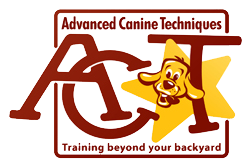I just read a great facebook post from MacRae Sheepdogs about how your successes are tied to your mindset. I believe that is true. Professional athletes train long hard hours to achieve their goals. Even if they don’t win, they reflect on each experience and make changes for the next race or game. They don’t give up or get frustrated or blame anyone else for the loss. Most importantly, they are consistent. They eat good food, get enough rest and maintain a good balance of mental and physical training along with fun.
We can also apply this to dog training. If we are influenced by the opinions of others, impatience, and unwillingness to try new methods, we will have a hard time moving forward. The more we learn, the more we realize there is so much more to learn. I’ve been training for many years, but I am still openminded to try new techniques and become a better version of myself.
Athletes have the same mindset. They get criticized and ridiculed but they come back each week. They rely on their teammates and coaches. Think of yourself as your dog’s teammate and coach.
If I make a mistake, I need to laugh it off and move on. If I focus on my insecurities, I will have a hard time providing the leadership my dog needs.
If you’ve been in my classes, I joke a lot. I want dog training to be fun and if I make a mistake, I just move on. We are working with animals. Sometimes I pick a dog for a demo and it goes amazing. Sometimes I pick a dog and it fails. No worries. I grab another dog and try again next week with the first dog.
If your dogs are sassy, just own it, laugh and move on. Don’t take their behavior so seriously – unless it is aggression and then, yes, I want you to put safety first.
In addition to having a positive attitude about training, we also need to provide our puppies good food, enough rest, rules, structure and a balance of mental and physical exercise. But the most important part is attitude.
One area that owners struggle is to praise their dog enough. Yes, they make mistakes and sometimes drive us crazy and that is what we focus on the most. But when they make good choices, follow our commands and are calm and quiet, we need to reward that. Reward the baby steps. The more you do that, the more your mindset will change, and you will begin appreciating your dog more often.
I tend to get good results when I take the leash and work with a dog because I approach it with a positive attitude and a vision of what I want the end result to look like. Most times, remaining calm and providing quiet confident leadership helps the dog to follow and listen to my direction.
The other goal is to think about the problem from the dog’s perspective and then what we can do to make the exercise easier for them.
I am challenging all of you to put mind over matter in May when you work with your dogs and see if you have a better experience.

